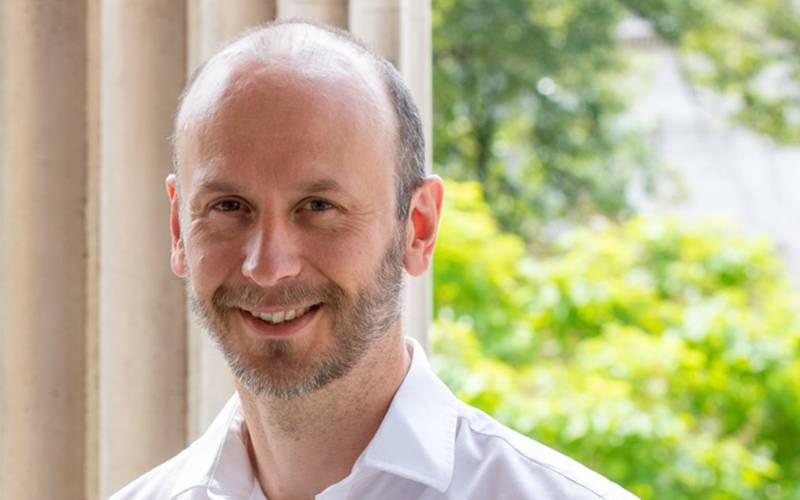Nigel is Professor of Infectious Disease Epidemiology at the UCL Institute for Global Health, and Director of the Centre for Molecular Epidemiology and Translational Research.

What is your role and what does it involve?
I am Professor of Infectious Disease Epidemiology at the UCL Institute for Global Health. My academic work is focused at the interface between basic science and epidemiology, which involves designing studies that bring together molecular, clinical and population-level datasets to answer questions about human health and infectious diseases. I also really enjoy teaching and I am Co-Director of the MSc in Applied Infectious Disease Epidemiology (AIDE), which I set up with colleagues four years ago to train new generations of epidemiologists to combat communicable diseases. The MSc is highly interdisciplinary, layering basic and clinical science, social science, modelling, ecology, and bioinformatics on top of essential statistical, epidemiological and critical appraisal skills.
How are you improving the health of the public?
I am the PI of the Baby Biome Study, which is a birth cohort study following ~3,500 children born in 2016-17. We designed the study to understand how colonisation of the human gut in early life might influence health and disease in later life. In a huge freezer in Milton Keynes, I have thousands of faecal and other samples from these children and their mothers, which we have used to analyse the neonatal gut microbiome in over 1,200 of the children. There were huge differences between babies born vaginally and by caesarean section, with the latter frequently colonised by opportunistic pathogens and much more likely to be carrying genes conferring antimicrobial resistance. One of the important questions we are now investigating is whether these differences matter for future health, for example, we want to know whether they are associated with diseases such as lower respiratory tract infections in childhood.
I am also an investigator on the fourth National Survey of Sexual Attitudes and Lifestyles (Natsal-4), which is currently in the field. I am responsible for the biosampling in Natsal-4, which we hope to use to understand the prevalence of key sexually transmitted infections (STIs) in the population, and associated risk factors. We plan to use the data to evaluate major national public health interventions, such as the HPV vaccination programme and chlamydia screening programme.
What do you find most interesting or enjoyable about your work?
Three things, (1) I hugely enjoy the variety in my work, which I find stimulating and stretching, and I like starting to research new diseases and finding new ways of thinking about problems, (2) I really like the people I work with - team science in action - I find my colleagues inspiring, and there is great pleasure in working with colleagues who become firm friends, and (3) I'm not very good at being told what to do - and I love the freedom to largely choose what I work on and when I do it!
How have cross-disciplinary collaborations shaped your research?
Cross-disciplinary collaborations are part of every project I work on and feel embedded in everything I do, and they constantly give me new perspectives. I have a PhD in molecular virology, and a medical degree, so it is probably not surprising that I work with lab scientists and clinicians. However, for example, I never imagined I would be an author on qualitative research papers - and I've learned so much about how the nuances of individual experience and beliefs can shape our understanding of numerical data.
What advice would you offer to others interested in developing cross-disciplinary research?
I did the UK public health medicine training programme, and I think one of the things it teaches you about is brokering effective relationships and helping to translate concepts between different groups, which seems central to cross-disciplinary research. You also need to figure out the right blend of disciplines for a given project - you don't always need everyone. I sometimes see my role as much about the diplomacy as about the science, and I deliberately try to think about zooming in and out between the fine detail and the big picture to keep everyone on track.
What's next on the research horizon for you?
I'm really excited about a Wellcome grant recently awarded to UCL and the University of Liverpool called '4M: Microbes, Milk, Mental Health and Me; how do early-life gut microbiota and feeding shape long-term mental health in the C-GULL Cohort?' I am the Co-PI on 4M, and it will investigate how microbial gut colonisation, alongside feeding, are important as determinants of neurodevelopment trajectories and mental well-being via the microbiota-gut-brain axis. This will build on work we have done with the Baby Biome Study, and will involve whole new areas for me, including psychology, neurology and psychiatry.
If you could make one change in the world today, what would it be?
I think infectious disease epidemiologists have been slow to recognise how much infectious diseases, just like non-communicable diseases, are patterned in society along gradients of inequality. COVID-19 has brought this to the fore. One change I would like to make is to go beyond simply observing the inequalities and find effective ways to remove these inequalities at a population level.
 Close
Close

